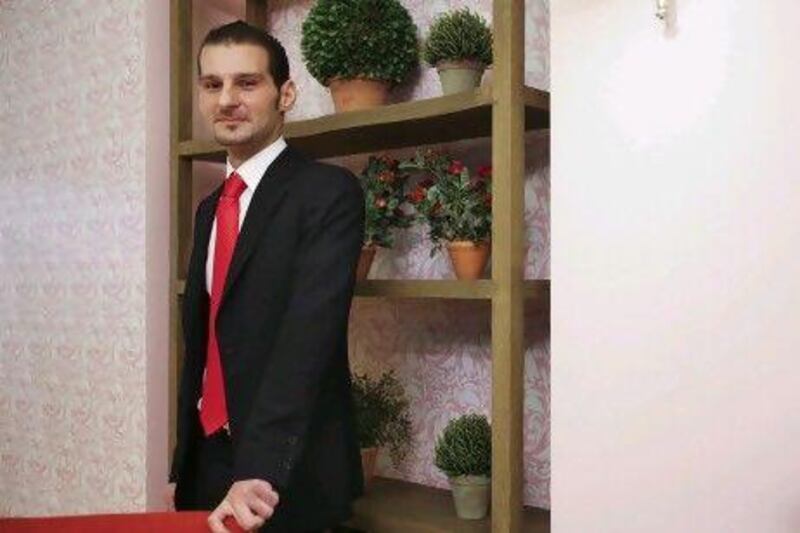How many more Lebanese restaurants can compete in the UAE? Ahmad Al Alami says there is room for more and opened one in Dubai yesterday, with plans for additional locations in that emirate and the capital. Mr Alami, who is one of the partners behind Pinnacle Restaurant Management Company, which is introducing the Leila Restaurant franchise from Lebanon into the emirates, talks about getting started in a fiercely competitive market.
There are already so many Lebanese restaurants in the UAE. Why have you decided to open Leila here?
We thought there was a need for a young, casual Lebanese diner that appealed to both locals and expats. Lebanese restaurants have a stigma for being overpriced, and young people don't like going because they find there's something very formal. Leila is a very young, colourful place. It usually is a woman's hangout, and in Beirut, if you go, the average [age] is 18 to 35.
How else are you positioning Leila to be different from what is already in the market?
We're very different because the other ones are more expensive. We also have innovative dishes. We offer an Arabic cotton candy with ice cream inside. [Also,] the cheese roll. They're not typical, because ours comes with pastrami. Usually they're just classic, fried cheese rolls. We try to make options for health-conscious people.
Your first restaurant has just opened at Mirdif City Centre in Dubai. How are plans progressing for an eatery in Abu Dhabi at Reem Island, which is still in its early stages of development?
It is actually delayed because developers said the buildings aren't completed. We've paid our deposit fees for that location. We've been granted [space] on the marina, on the waterfront, so we're willing to wait for such a location.
How difficult is it to have to wait while trying to start out?
It's quite harsh, but the deposit wasn't high. The developers are being lenient. They've delayed the terms of payment and have been very easy-going. The deposit was something: money is money. But it's a location that's so prime, and iconic, that it's worth waiting for.
Have you had trouble finalising deals for your new locations?
It's one of the huge barriers in the SMB [small to medium business] industry. The lack of prime locations. Competition is fierce. It took us time to get the locations in terms of how strategic they are.
What obstacles have you run into more recently?
We were very excited about this business, but it turns out not to be easy. People think F&B [food and beverage] is easy, and I'll put out a restaurant the next morning. The obstacle: it took forever to get the staff. We got the Lebanese staff; that wasn't a problem. But hiring the Filipino staff [required dealing with an] overseas labour office. That takes time. Getting staff isn't cheap. To start a company you put out a forecast, but hiring can run over.





